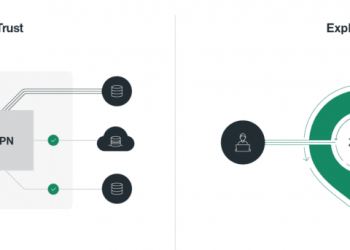When you sit down to write a story you probably already have a sense—maybe subconscious—of what kind of story it is. Is it a romance? A mystery? A speculative deep dive into an alternate future? Whatever it is you’re writing in a genre.
But what is genre? Why does it matter to writers? And how much should we stick to—or challenge—the boundaries?
Let’s break down what genre means today and why knowing your genre might just be the most important creative decision you make.
What Is Genre?
Genre is one of those words we use flippantly, but it’s actually complicated. At its most basic genre is a classification system—a way to categorize creative works by shared characteristics, themes or formats.
Think of it like a bookstore. We have sections like fantasy, horror, romance, science fiction or thriller. These help readers find the kind of stories they love—and help writers meet those expectations.
But genre isn’t just about marketing or shelving—it’s about narrative DNA. The setting, tone, plot structure, character types and underlying themes all feed into what makes a story’s genre.
“Genre is not a box—it’s a toolbox.” — Anonymous Writing Professor Who Deserves Credit
Genre Has Deep Roots (and a Modern Twist)
The word “genre” comes from the French for “kind” or “type,” but the idea of categorizing stories goes back to Ancient Greece. Aristotle wrote about tragedy, comedy, and epic poetry—genres that still influence us today.
Now we have dozens of recognized genres, and sub-genres, hybrids, and niche crossovers. From dark academia to hopepunk, the language we use to define genre is always evolving—and shaped by communities, online spaces, and reader trends.
Why Genre Matters to Writers
Some writers resist genre labels, fearing it will constrain their creativity. But understanding genre is about making more informed decisions.
Knowing your genre helps you:
- Build structure your readers will recognize (and love)
- Meet expectations for tone, stakes, and resolution
- Market your book to the right audience
- Get published—traditionally or indie
Readers come to a story with genre-based assumptions. Subverting them can be powerful—but only if you know what you’re subverting.
For example, if you’re writing a story about two people falling in love, but the ending is tragic, you’re not writing a romance (by the publishing world’s definition)—you’re writing a love story or romantic tragedy. That matters especially when you pitch or publish your book.
Genre Conventions: The Building Blocks
Every genre has its set of conventions—recurring elements that give readers familiar reference points.
Let’s break them down a bit:
🧙♂️ Fantasy
- Tropes: Chosen one, magical artifacts, epic battles
- Settings: Imagined worlds, medieval kingdoms, ancient forests
- Characters: Wizards, knights, shapeshifters, talking animals
- Themes: Good vs. evil, identity, sacrifice
💘 Romance
- Structure: Meet-cute → Conflict → Breakup → Reconciliation
- Tropes: Enemies-to-lovers, fake dating, forbidden love
- Expectation: A HEA or HFN (happily ever after / happy for now) ending
🚀 Science Fiction
- Tech: AI, space travel, cybernetics
- Settings: Futuristic worlds, dystopias, alien planets
- Themes: Ethics of innovation, survival, the human condition
🕵️♀️ Mystery
- Structure: A central question or crime → Investigation → Revelation
- Conventions: Red herrings, twists, clever resolutions
These aren’t rules—but patterns. You can bend or break them, but doing so knowingly is far more effective than doing it by accident.
Beyond the Boundaries: Sub-genres and Hybrids
Genres don’t exist in isolation. Most stories blend elements from multiple categories, whether intentionally or organically. That’s how we get:
- Romantic fantasy (e.g. Zuri Day)
- Science-fantasy (e.g. Halo)
- Historical mysteries (e.g. Cozy Case Files)
- Climate fiction (e.g. Migrations by Charlotte McConaghy)
Blending genres can help your story stand out, but it also creates a marketing challenge. Where will it be shelved? Who’s the target audience?
One solution? Lead with the dominant genre, but communicate secondary genre elements clearly in your pitch, synopsis, or cover design.
Genre and Your Author Brand
If you plan to publish more than one book, your genre isn’t just a creative choice—it becomes part of your brand.
Many authors stick with one genre for the sake of audience consistency. If a reader loves your cozy mystery series, they might be confused to find your next book is a dystopian sci-fi epic.
But that doesn’t mean you have to choose just one genre forever.
Some tips for writing across genres:
- Use pen names if switching between radically different genres
- Be transparent with your readers about what to expect
- Create clear branding on your covers, blurbs, and online presence
- Study the genre you’re writing in: Know the trends, read current bestsellers, and understand your reader
Plenty of writers succeed across genres—from Nora Roberts (romance) to her alter ego J.D. Robb (futuristic thrillers), or Neil Gaiman, who blends everything from horror to mythology to literary fiction.
Genre Fiction vs. Literary Fiction
There’s an old (and honestly outdated) dichotomy between literary fiction and genre fiction. Literary fiction is often seen as more “serious,” while genre fiction is dismissed as “commercial.”
But here’s the truth: genre fiction can be just as thought-provoking, complex, and beautifully written as any literary novel. And literary fiction often draws on genre conventions—look at Kazuo Ishiguro’s Never Let Me Go (science fiction) or Colson Whitehead’s The Underground Railroad (historical fantasy).The line is blurrier than ever—and that’s a good thing.
Final Thoughts: Writing With Purpose
Whether you’re a plotter or a pantser, a debut author or a seasoned pro, understanding genre gives you more control over your storytelling.
- It helps you communicate clearly with your readers.
- It connects you to a tradition of writers, stories, and archetypes.
- It gives you a foundation you can follow—or creatively break.
At the end of the day, genre isn’t a restriction. It’s a language. Once you speak it fluently, you can say anything you want.








